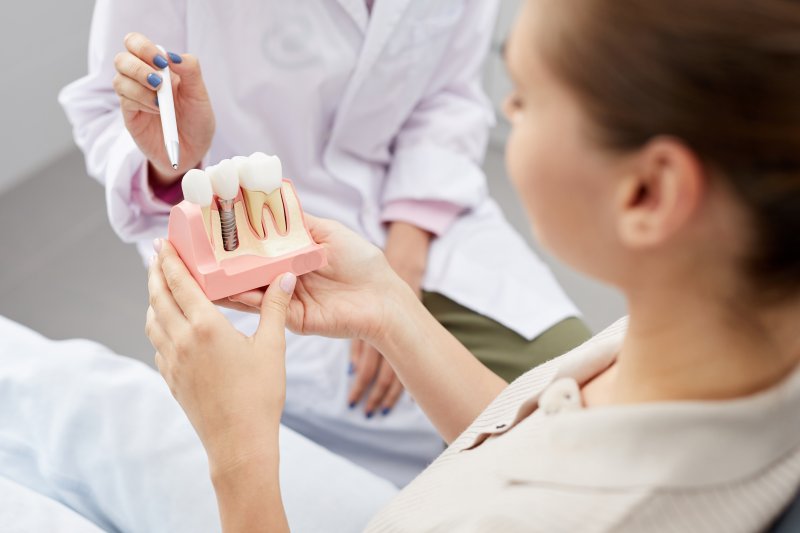
To make an informed decision on whether to get dental implants, you need to know the procedure’s specifics — what it does, what it involves, etc. This fact also means you’ll need to learn its relevant terms. After all, you can’t know whether implants will help if you’ve never heard of them. Committing to anything in that situation would just be reckless. That said, here are five dental implant terms you should know before getting treatment from your dentist.
Implant
Also called a fixture, a dental implant is a device that integrates with your jawbone to support a bridge, crown, denture, or similar item. It will fuse securely to your bone, supplying a strong and durable result.
Many dental implants last for patients’ entire lives. As such, they’re generally a better option than bridges (which may need replacement) or dentures (which can be uncomfortable and difficult to wear).
Ceramic/Porcelain
Ceramic and porcelain are materials used to make dental implants. Both are made of clay and hardened by heat before being placed in your mouth. The terms are often interchangeable, though they differ since porcelain heats at higher temperatures.
Some people prefer the aesthetic appeal of ceramic or porcelain to titanium since the former two offer a more natural look. Ceramic implants have conical threading at the base for easier attachment to the bone in your jaw.
Abutment
An abutment is a connector that your dentist builds into or attaches to the top of your dental implant. It serves the grounding for the replacement tooth, crown, or bridge, keeping it firmly in place.
(Dental) Crown
A crown, also known as a cap, replaces a single tooth. It’s a dental restoration that completely encircles a missing tooth or dental implant.
A tooth lost or broken from infection can get a crown to replace the missing or damaged part. While crowns fit over the top of existing teeth, they must be ground down to work or attach to the abutment of a dental implant.
Osseointegration
Osseointegration comes from the Greek and Latin words meaning “bone” and “to make whole.”
Specifically, it refers to the biological process in which a dental implant fuses with your existing bone, improving the strength between the living bone and the load-bearing implant.
Now that you know more about key dental implant terms, you understand how you’ll benefit from treatment. Talk with your local dentist to see if these replacement teeth are right for you!
About the Practice
Riviera Family Dentistry of Denver is based in Denver, CO. Led by Drs. Goyal and Kingsberg, their team offers patients truly convenient treatment. One way they do so is with flexible appointment hours, including openings on evenings and Saturdays. Another is by including same-day emergency dental services. Lastly, their procedures — spanning preventive, cosmetic, and restorative dentistry — let you resolve different dental needs in one place. For more information or to book an appointment, reach them at their website or by phone at (720)-640-0272.
